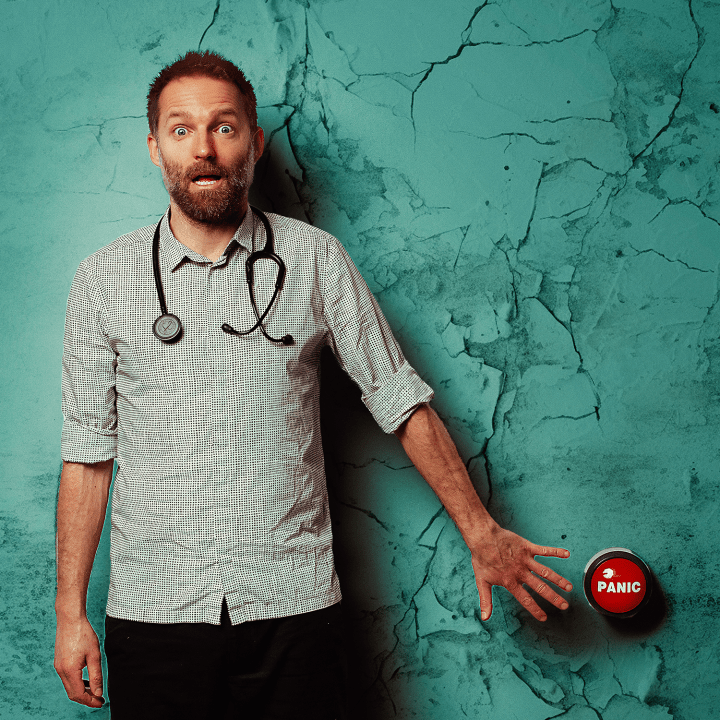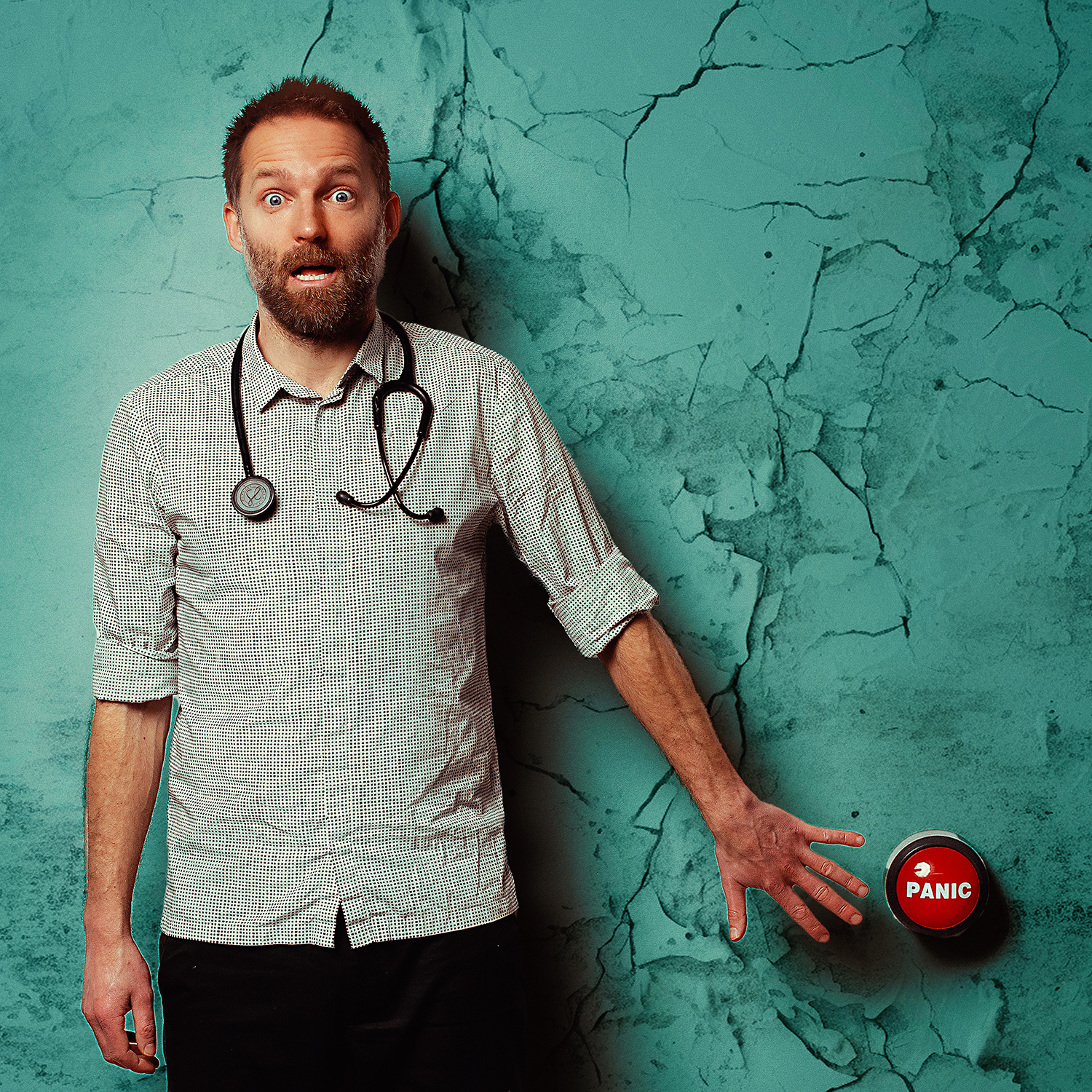
Edinburgh seems underpopulated this year. The whisky bars are half full and the throngs of tourists who usually crowd the roadways haven’t materialised. There’s a sharp chill in the air too. Anoraks and hats are worn all day, and anyone eating outdoors in the evening is dressed for base camp.
Perhaps tourists don’t want to travel because they’re too depressed. That’s the specialism of Dr Benji Waterhouse, an NHS shrink, who writes and performs comedy about his patients. Dr Benji is an attractive presence on stage with his crumpled Oxfam clothes and his dreamy, half-shaven look. He could be the guy who tunes up U2’s guitars.
His act is very funny and it contains some amazing revelations. Morale among mental-health care workers is permanently low for a simple reason: all psychiatrists are depressed, including him. That’s what forces them into the profession. Dr Benji was doomed from the start because both his parents were psychologists, and his career hasn’t cheered him up.
At work, he finds that common sense is just as useful as clinical knowledge. He treated a patient named Femi who declared that he was a 3,000-year-old werewolf. ‘I can feel the beast in me!’ he raged. Dr Benji showed him his watch. ‘It’s 9 a.m., Femi. Werewolves sleep by day.’ Femi abandoned his role-play instantly. Many patients just want a bit of friendship and attention and their therapists are merely glorified social workers or paid companions.
When Dr Benji grew disenchanted with his dead-end job he booked an appointment with an NHS shrink who diagnosed depression and prescribed a course of pep pills. Couldn’t Dr Benji have done that himself? It seems that lots of mental-health staff, perhaps all of them, suffer from psychiatric disorders that require regular consultations and bottles of drugs. That’s why no one can get an appointment. All the NHS shrinks are seeing other NHS shrinks.
Another pill-popper, Rosie O’Donnell, delivers an hour-long sermon about moving to Ireland from the US. Her first stop is the local pharmacy where she stocks up on Imodium, a laxative and a bag of painkillers disguised as sweets for her daughter, Dakota. O’Donnell wants us to believe that she was drummed out of her homeland by Donald Trump who threatened to revoke her citizenship. In fact, he issued the threat after she’d moved to Ireland but this little error enhances her status as a victim of ‘the Orange Menace’.
The amusing script develops into a middle-class comedy of manners that could easily become a TV series
The bulk of the show is devoted to O’Donnell’s skills as a single mother and she rates herself very highly. When Dakota was little she was allowed to watch a lot of movies and TV quizzes and she liked to impress the adults by quoting film scripts and repeating trivial information learned from game shows. O’Donnell deduced that Dakota was a genius. An autism test was arranged. Dakota secured the coveted diagnosis and her mother was thrilled, of course. It didn’t occur to O’Donnell that Dakota was receiving emotional rewards for performing deeds that matched the personality type mapped out by the adults. She wasn’t exceptional, just obedient. Eventually people like O’Donnell will realise that autism is a condition affecting over-competitive parents who refuse to accept that their children are average. This explains the prevalence of autism in Hollywood. Dakota has since embraced a non-binary alter ego named ‘Clay’. O’Donnell found this exciting too. ‘When your child tells you who they are, you listen,’ she declares. Well, not always. When your son says he’s Superman you don’t lead him to the uppermost floor and open the window.
Hold The Line, by Sam Macgregor, examines a neglected area of the NHS. Gary works at a 111 call centre that handles queries from patients with non-emergency problems. The office rules are pretty oppressive. Gary’s browser history is inspected by his female boss who checks that he isn’t watching movies in between calls. After making an error that results in a patient’s death, Gary is demoted to clerical duties and he has to redeem himself and prove his value to the NHS. This is a small and exceptionally well-acted drama that has a lot of promise. It deserves to be restaged with more than two actors and a longer running time.
Eggs Aren’t That Easy To Make follows the story of a lesbian couple who invite a male friend to help them have a child. The technical term ‘spuncle’ describes his role. Maria Telnikoff’s amusing script develops into a middle-class comedy of manners that could easily become a TV series. The storyline has endless possibilities.
Ivor Dembina, an elder statesman of Jewish comedy, teases the crowd by asking them to identify anti-Semitic stereotypes. ‘All Jews are stingy,’ someone calls out and Dembina replies, ‘Yeah, if only I’d had a fiver every time I heard that one.’ At this year’s fringe he heard a brilliant heckle. He asked for ‘false myths about Jews’ and someone said, ‘They’re all funny.’









Comments